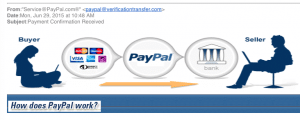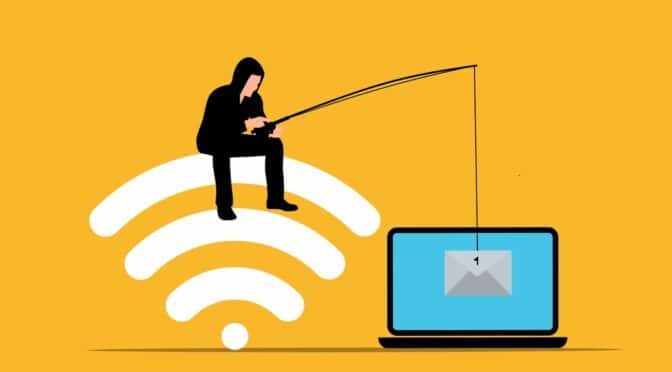by Barbara Nevins Taylor
Willy Wong felt lucky. The day after he posted an ad online for his mobile home, he got a response from a potential buyer,
Cherry Wilson. In a chatty email, she said she was in the Army without access to phone service and asked a few questions about the condition of the vehicle. She also asked if Willy had a PayPal account.
She put the scam of the summer into play.
Cherry wrote that she wanted to buy the mobile home for her son and said, “I have a mover that will come for pickup once payment clears first.”
In the next email, she skipped other preliminaries, didn’t haggle and agreed to pay $16, 600.
“I was very excited to sell the mobile home for my asking price so quickly,” Willie remembered.
Then the 66-year-old retired postal worker began to receive emails with the PayPal logo. They announced that someone called Wayne Tiller had deposited $16,600 in Willy’s PayPal account. But he couldn’t claim the money quite yet.

To get the money, Willy would have to send $1500 via Western Union to cover the cost of transporting the motor home from Queens, New York, across the country to Tiller in Colorado. One of the emails had a moving ball on it that made action seem urgent.
Willy and his wife Angel imagined the $16,600 in their bank account, thought about a possible vacation and so many other things. They wanted to claim the money before the buyers changed their minds. “We didn’t have time to think,” Angel said.

The Wongs printed out the emails and took them to a Western Union store near where they live. “We thought we had to do this right away. We were really excited and happy and we thought someone at Western Union could tell us more., ” Angel recalled.
They showed the Western Union representative the emails and asked how they could get the $16,600. He shook his head and told them, “We don’t handle that kind of money, If you want to wire the $1,500, we can handle that.” But he said he had no clue how they would get the money from the buyer.
Willy and Angel looked at each other and left the store. “We’re not that stupid. We knew something was wrong,” Angel said. We wouldn’t send money until we were sure we had the big money in our account.”
So, deflated and confused, they drove home talking and thinking. They spread out all the emails on their kitchen table.
Willy remembered that he’d never given his full name or his PayPal account information. “How could the money be in my account?” he wondered.
Their 23-year-old son James looked over their shoulders and said impatiently, “This is fake. PayPal doesn’t send emails like this. They’d use your name. They wouldn’t say, “Hi.”
Willy Googled the “transport” company in Waverly, Iowa “The address had no house or building number. And he told his family, “There is no such address.”
Angel looked at him and sighed with disappointment. “James is right. It’s fake,”
Willy shot off an email to the so-called buyers and wrote, “We know what’s going on with you. Don’t send us anything anymore.”
The Wongs discovered the scam before they sent the money and consider themselves really fortunate.
The scam of the summer puts a new twist on a con game we have seen played over and over again in a number of variations.
The Federal Trade Commission (FTC) lumps the new and the old together and calls them “money transfer scams.”
Typically, you get an email or a phone call and someone tells you they will buy an item from you, but you have to send money first for shipping or taxes, or something that doesn’t make much sense. They might say:
- You won a prize but you have to pay taxes on it.
- A friend in trouble needs your help.
- You can get a loan, even with bad credit. But you must pay a small fee first.
- Your grandson or granddaughter needs money right away to get out of trouble.
A PayPal spokesman told ConsumerMojo.com, the company won’t comment about specific scams. But PayPal, he said, takes these frauds seriously and warns consumers to protect their accounts against what PayPal calls “spoofs.”
He also confirmed what James Wong told his parents. PayPal always sends emails that address you by your full name, or your company name. It never sends emails that say, “Hi,” or “Dear PayPal User.”
The spokesman offered a few suggestions for all PayPal users.
- ” If you believe you have received a fraudulent email, please forward the entire email <including the header information> to spoof@paypal.com. We investigate every spoof reported. Please note that the automatic response you get from us may not address you by name.”
- “Don’t share personal information via email: We will never ask you to enter your password or financial information in an email or send such information in an email. You should only share information about your account once you have logged in to www.paypal.com.”
- “Don’t download attachments: PayPal will never send you an attachment or software update to install on your computer.”
Angel and Willy Wong say they intend to take extra care when they do get a response from a legitimate buyer for their mobile home. Willy said, “They find so many ways to steal from you on the Internet. You have to be careful.”



